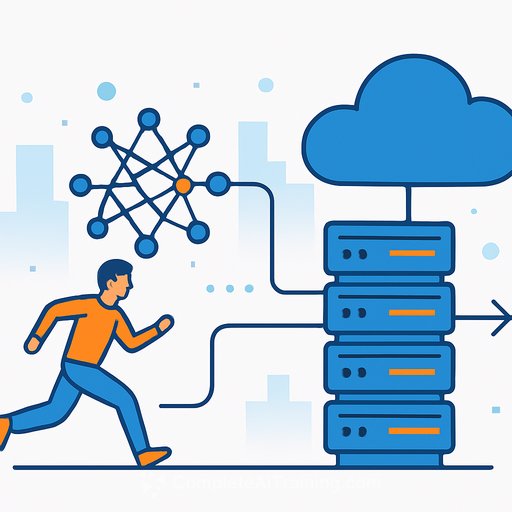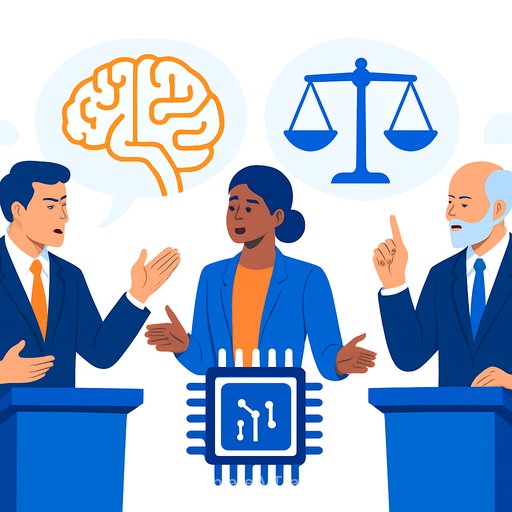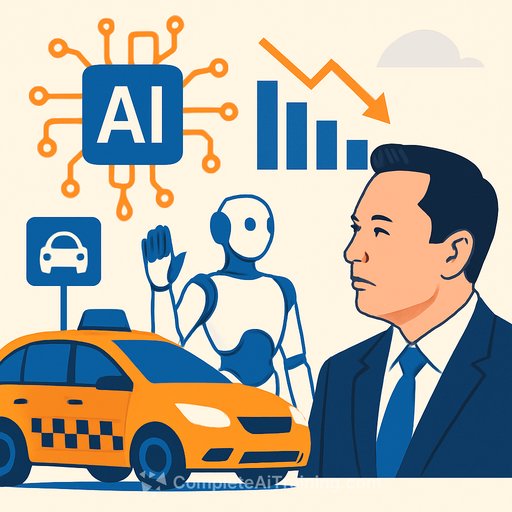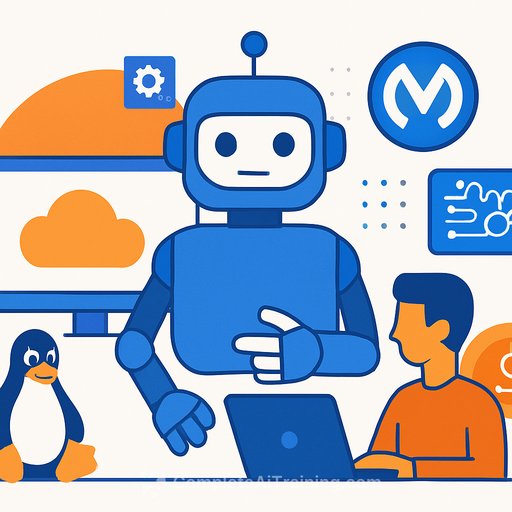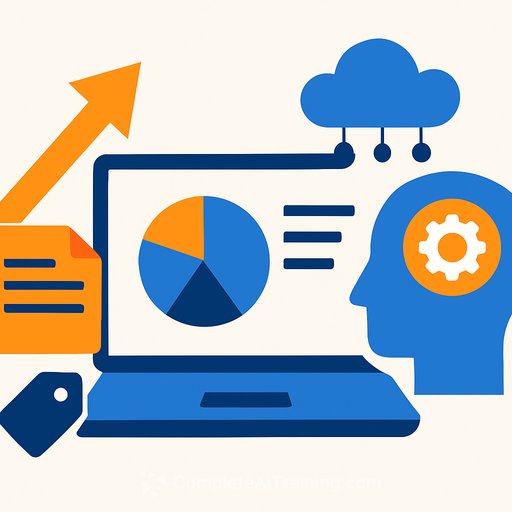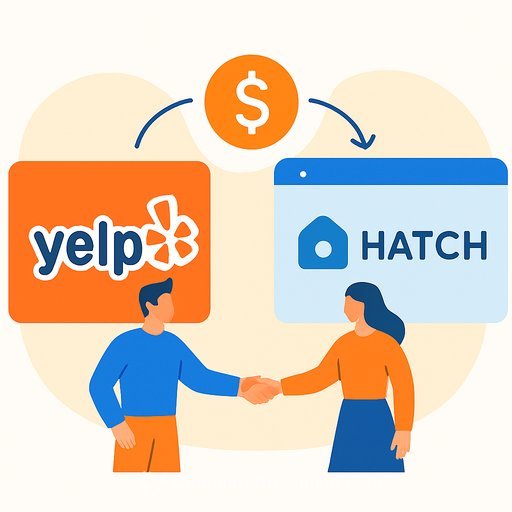People management in the AI era: purposeful enquiry as the new power skill
Workplace wellbeing is falling. The Chartered Institute of Personnel and Development reports mental ill health as the leading cause of long-term absence, with 47% of organisations seeing a rise in mental health-related absences and 64% reporting stress-related absence in the last year. Pair that with sliding engagement and you get a direct hit to productivity.
At the same time, AI is taking on more work - from coding and analysis to generating reports and KPIs. This shift can help or harm, depending on how leaders respond.
The double edge of AI
A Finnish study found AI has a significant effect on employees' wellbeing. One in five Gen Z workers is very concerned AI will take their job in the next two years, and 32% of US workers expect fewer job opportunities.
But if AI is applied to improve organisational tasks, data security, and occupational health, it can lift wellbeing. The opportunity is real - and it sits with management.
Why "soft" skills are now business-critical
Empathy, clear communication, active listening, and collaboration used to be tagged as "soft." They're now the differentiators. These skills drive trust, reduce stress, and raise the bar on performance - and they're hard for tech to replicate.
Managers are the leverage point. Gallup found managers account for 70% of the variance in team engagement. Poor management explains at least a third of productivity variance between countries and companies. That's a strategy problem, not a side issue.
Sources: CIPD: Health and Wellbeing at Work, Gallup: State of the Global Workplace
Enquiry-led management: the practical shift
AI frees managers from data-heavy tasks. Use that time to lead better, not just do more. The most effective shift: an enquiry-led style known as Operational Coaching® - asking purposeful questions that engage thinking, build ownership, and raise capability.
Research by the London School of Economics showed managers who adopt this approach break habits like micromanaging and fixing for others, and instead enable people to solve problems themselves. The study reported a 74x return on investment tied to productivity gains.
How it improves wellbeing and results
- Less micromanagement, more autonomy - employees think for themselves and act faster.
- Psychological safety - people share ideas, test solutions, and learn without fear.
- Clear feedback loops - appreciative and constructive feedback becomes routine.
- Stronger engagement - ownership replaces passive compliance.
And the business case is strong. When people use their strengths daily, engagement rises almost sixfold. Highly engaged teams see 78% lower absenteeism and lower turnover. When employees feel their manager cares about wellbeing, they're 73% less likely to feel burned out and 53% less likely to be job hunting.
The AI connection: better questions, better outputs
Purposeful enquiry is the same muscle you need to get value from AI. Ask better questions, give sharper context, set constraints, define outputs. That skill lets you get reliable support from AI and better thinking from your team.
Prompt pattern for managers
- Goal: What outcome are we aiming for?
- Context: What matters, what doesn't, and why?
- Constraints: Deadlines, resources, risks, and must-haves.
- Evidence: Data, examples, and prior work.
- Output: Format, tone, and next action.
Use the same pattern in 1:1s and with AI tools. You'll reduce rework and speed up cycle time.
The enquiry toolkit: questions that change behaviour
- Outcome: "What result do you want by Friday, and why does it matter?"
- Options: "What two viable options do you see? Pros and risks?"
- Ownership: "What will you do first? By when?"
- Obstacles: "What could block you? How will you handle that?"
- Support: "What do you need from me that would unlock progress?"
- Learning: "What did you learn? How will you apply it next time?"
Weekly cadence for managers
- 10-minute check-in: outcome, progress, obstacle, next step.
- 15-minute problem clinic: team member brings options; you ask, they decide.
- Feedback loop: one appreciative, one constructive, both specific.
- AI assist: use AI to draft plans, risks, or retros, then refine with the team.
Metrics that matter
- Engagement drivers: role clarity, recognition, growth, and trust in manager.
- Throughput: cycle time from request to decision; meeting time reclaimed.
- Ownership: % of issues solved without escalation; decisions made at the right level.
- Wellbeing: stress-related absence; manager and team workload balance.
30-60-90 plan for executives
First 30 days
- Set the policy: enquiry-led management is the standard.
- Train managers in purposeful questioning and feedback basics.
- Adopt a prompt pattern for AI use across teams.
Days 31-60
- Run weekly micro-practice: five questions per 1:1; five AI prompts per manager.
- Shift meetings: decisions prepared in writing; manager asks, team proposes.
- Measure: engagement pulse, meeting hours cut, decisions made at the right level.
Days 61-90
- Scale what works: case studies, playbooks, internal demos.
- Formalise coaching circles for managers.
- Tie enquiry behaviours to performance reviews and promotions.
The takeaway
AI will keep taking work off plates. Your edge is how managers think, ask, and lead. Teach purposeful enquiry, pair it with smart AI use, and you'll raise wellbeing, engagement, and output - without adding more noise.
Next steps
- Equip your leaders with practical AI and enquiry skills: AI courses by job role.
- Level up prompt quality across teams: Prompt engineering resources.
Your membership also unlocks:



